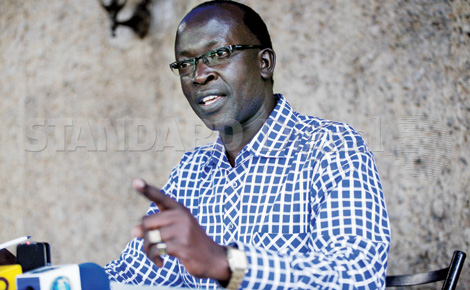×
The Standard e-Paper
Kenya’s Boldest Voice
 |
| Journalist Walter Barasa. [PHOTO: FILE/STANDARD] |
By FELIX OLICK and ISAIAH LUCHELI
NAIROBI, KENYA: Following the ruling by High Court judge Richard Mwongo, the way is now clear for the police to arrest journalist Walter Barasa.